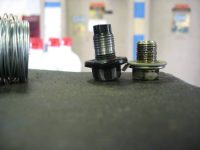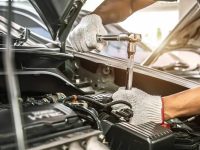Why Running a VIN Check Is One of the Smartest Moves Before Buying a Car

When buying a used car, emotions can run high. The thrill of finding the perfect vehicle at the right price can cloud judgment, leading many buyers to skip over essential steps in the process. One of the most critical—and often overlooked—moves is running a Vehicle Identification Number (VIN) check. This simple yet powerful action can save buyers from making costly mistakes and ensure they’re making an informed investment.
In this article, we’ll explore why running a VIN check is one of the smartest decisions you can make before purchasing a vehicle. From uncovering hidden histories to verifying authenticity, this tool can be your most reliable ally in the used car market.
What Is a VIN Check?
A VIN check involves using the vehicle’s unique 17-character Vehicle Identification Number to retrieve detailed information about its history. This includes data such as:
- Title records
- Accident history
- Odometer readings
- Previous ownership
- Recalls and defects
- Service and maintenance history
- Theft and salvage status
Think of it as a background check for cars. Just as you wouldn’t hire someone without knowing their professional history, you shouldn’t buy a car without knowing where it’s been and what it’s been through.
1. Detect Hidden Damage and Accidents
One of the main reasons to perform a VIN check is to detect past damage. Sellers may not always disclose whether a vehicle has been in an accident. Some may even go as far as making superficial repairs to mask structural damage.
A thorough VIN check reveals if a car has been involved in a crash and provides details such as the severity of the damage and where it occurred. This insight allows you to judge whether the car is truly roadworthy—or if it’s a ticking time bomb in disguise.
2. Verify Title Status and Avoid Salvage Scams
Not all titles are created equal. Vehicles with salvage, rebuilt, or flood-damaged titles are typically sold at lower prices but can come with high long-term costs due to hidden mechanical issues or poor repair work.
A VIN check ensures the title is clean and not branded, which can significantly affect a car’s resale value and insurability. In cases where the vehicle has a branded title, the report will explain why and when it was issued, giving you a clearer picture of what you’re buying.
3. Expose Odometer Fraud
Odometer fraud is more common than many think. Unscrupulous sellers may tamper with mileage to make a car appear less used—and therefore more valuable—than it actually is.
A reliable VIN check pulls data from various sources, such as inspections and service centers, to provide a verified mileage history. Any inconsistencies between the stated mileage and documented readings raise an immediate red flag, helping you avoid a scam.
4. Identify Recalls and Safety Issues
Cars with open recalls may pose serious safety risks. Manufacturers issue recalls to correct defects that could compromise a vehicle’s safety, and yet many of these issues remain unresolved by owners.
A VIN check allows you to see if there are any open recalls on the vehicle you’re considering. With this knowledge, you can ask the seller to address the issues before closing the deal or reconsider your purchase entirely.
5. Confirm Vehicle Specifications and Authenticity
Fraud isn’t always about hiding damage; sometimes, it’s about identity theft. Stolen vehicles can be resold with fake paperwork and cloned VINs, leaving unsuspecting buyers liable.
A legitimate VIN check cross-references vehicle specifications like make, model, engine type, trim level, and manufacturing details. If the information doesn’t match what the seller claims or what’s physically on the car, it’s a major red flag.
6. Understand Ownership and Usage History
Knowing how many previous owners a vehicle has had—and how it was used—can provide essential insights into its condition. Was it a personal vehicle, a rental, or a fleet car? Each use case has implications for wear and tear.
A VIN check gives a timeline of ownership, showing changes in registration and use. If a car has changed hands frequently or was part of a commercial fleet, it may have endured more strain than a personal-use vehicle.
7. Make an Informed Negotiation
Knowledge is power, especially when negotiating a car deal. Armed with a VIN report, you’re better positioned to challenge a seller on pricing discrepancies, damage history, or inaccurate claims.
For example, if the report reveals an accident that the seller didn’t disclose, you can either negotiate a better price or walk away from a potentially risky investment.
8. Gain Peace of Mind
Ultimately, a VIN check provides peace of mind. Buying a car—especially a used one—is a significant financial decision. With a full vehicle history report in hand, you’ll have the confidence that you’re making a safe, informed choice.
Even if everything checks out perfectly, that validation alone is worth the small cost of the report.
Where to Get a Reliable VIN Check
There are several platforms where you can perform a VIN check, but it’s essential to choose a trusted provider that offers comprehensive, accurate, and up-to-date information.
For a thorough report that includes accident history, title status, mileage records, and more, consider using this resource. It’s user-friendly, cost-effective, and trusted by buyers and dealerships alike.
Conclusion
Running a VIN check is no longer optional—it’s essential. In a market where fraud, misrepresentation, and undisclosed issues are all too common, this simple step protects you from unnecessary risk. Whether you’re a first-time buyer or a seasoned car enthusiast, taking the time to verify a vehicle’s history ensures you’re making a smart, informed decision.
Before you hand over your money or sign on the dotted line, let the VIN tell its story. It might just save you from a serious case of buyer’s remorse.







